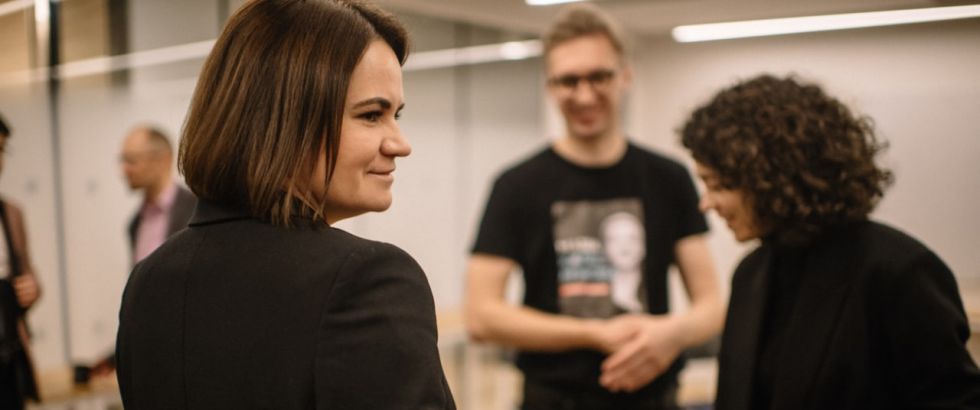Civil society develops online services, democratic forces promote the sanctions agenda
 The situation has not changed
The situation has not changed

Educational and advisory infrastructure closed down by security forces is gradually being rebuilt online and abroad. Political exiles and the diaspora influence Western capitals regarding the Lukashenka regime and sanctions. Political parties resume internal organisational and educational activities.
A broad alliance of democrats is trying to align their supporters with a unified approach to voting in the referendum. However, this coalition is losing some influence due to fragmentation of approaches and alternative proposals, such as the boycott initiative and the plan promoted by Babaryka’s headquarters. Discussion in independent media and society is shifting towards rising tensions due to the Kremlin’s possible aggression in Ukraine and the threat to the independence of Belarus.
Democrats are trying to establish dialogue with members of election commissions, ensure transparency of vote counting, and gain access to voting figures at polling stations. The authorities are adopting countermeasures to consolidate and motivate election organisers, but without visible results.
The diaspora and political exiles continue to draw the attention of Western capitals to the situation in Belarus. Sviatlana Tsikhanouskaya is invited to the Munich Security Conference. Ambassadors and special representatives of Lithuania, Poland, France, the United States, the EU met with representatives of Belarusian non-governmental organisations. However, the International Day of Solidarity with Belarus is a smaller scale event than a year ago.
After an online meeting of athletes from the Belarusian Sports Solidarity Fund, US Deputy Secretary of State Uzra Zeya imposed sanctions on officials from the sports administration of the Lukashenka regime.
Human rights activists, analysts, and social commentators resume educational services from abroad and online. The Minsk Urban Platform has published a brochure on the development of local communities. Human rights activists announce a new enrollment for the basic school on human rights to be held in Ukraine.
The BSDP (Hramada) holds a congress and elects the leadership.
Tension and mutual criticism in civil society is increasing, largely due to fatigue from the protracted confrontation with the Lukashenka regime.
The audience for independent media and the communication channels of democratic forces continues to decline. The office of Sviatlana Tsikhanouskaya is trying to establish new channels of communication with supporters of change.
Emigration of activists and dissidents continues and weakens the protest movement within the country.
The diaspora and supporting foundations attract funds to support civil society, political prisoners, and relocation of activists.
Depoliticisation of society will increase due to incessant repression and the departure of activists abroad.
Subscribe to our newsletter




Situation in Belarus
Constitutional referendum: main consequences


 Video
Video
How to count the political prisoners: are the new criteria needed?


 Video
Video
Paternalism In Decline, Belarusian Euroscepticism, And The Influence Of Russia


 Video
Video












